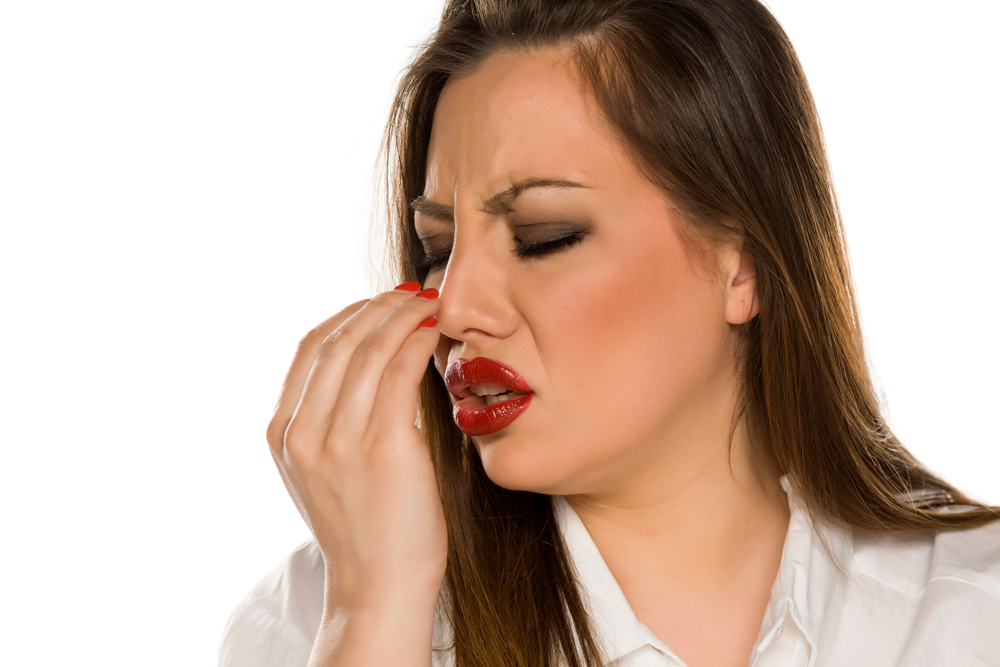
by Dr. Richard J. Walicki | May 2, 2024 | Dentistry, Nutrition, Vitamins
1. The Dental Diet: More Than Just Crunching Carrots
We’ve all heard about the benefits of eating our veggies, but did you know that your diet plays a starring role in your dental health? Drs. Weston A. Price and Royal Lee were pioneers in this field, and their wisdom still holds true today.
- Dr. Weston A. Price: Picture this—Dr. Price globe-trotting to remote villages, examining the teeth of indigenous people. His conclusion? Traditional diets kept teeth strong, immune to decay, and jaws well-formed. Forget the processed stuff; think nutrient-dense foods like organ meats, raw dairy, and fermented goodies.
- Dr. Royal Lee: Dr. Lee was all about whole foods. He championed the idea that our teeth thrive on vitamins, minerals, and healthy fats. His motto? “Let food be thy toothpaste!” So, load up on grass-fed butter, pastured eggs, and wild-caught fish.
2. The “Toothwiz Vitamins” Prescription
- Step 1: Hop over to ToothwizVitamins and sign up for your free account. It’s like a treasure chest of dental health goodies!
- Step 2: Explore the virtual aisles. Grab your vitamin D, calcium, and omega-3s. These are your dental superheroes.
- Step 3: Got questions? Ask away! With ToothwizVitamins you can connect with me if you want to communicate to someone who knows vitamins like the back of their toothbrush. 🙂
3. Then: Chew, Chew, Chew!
Enjoy foods that help your teeth and gums.
- Carrots: Crunchy, orange, and packed with vitamin A. They’re like mini toothbrushes for your gums. Plus, Bugs Bunny approves!
- Apples: An apple a day keeps the dentist away? Absolutely! The natural scrubbing action cleans your teeth. Just don’t forget to floss afterward.
- Nuts: Almonds, walnuts, and cashews—these little guys are like dental floss in disguise. They massage your gums and keep plaque at bay.
4. The Grand Finale: Smile Like You Mean It
Remember, good nutrition isn’t just about waistlines; it’s about winning smiles. So, chew those veggies, pop those vitamins, and let your teeth sparkle like diamonds!

by Dr. Richard J. Walicki | May 1, 2024 | Dentistry

by Dr. Richard J. Walicki | Apr 29, 2024 | Dentistry, Tooth sensitivity
The Problem: Sensitive Teeth
Tooth sensitivity can be uncomfortable and affect your daily life. While not the only reason for tooth pain, it often occurs when the protective enamel on your teeth wears down, exposing the dentin and nerve endings.
Causes:
- Worn Enamel: Aggressive brushing, acidic foods, or teeth grinding can erode enamel.
- Gum Recession: Receding gums expose sensitive tooth roots.
- Cavities or Cracks: Damage to the tooth structure can lead to sensitivity.
Solutions:
- Desensitizing Toothpaste: Use toothpaste specifically designed for sensitive teeth.
- Soft-Bristled Brush: Opt for a soft-bristled toothbrush to avoid enamel damage.
- Avoid Acidic Foods: Limit consumption of citrus fruits and sodas.
- Fluoride Rinse: Rinse with fluoride mouthwash to strengthen enamel.
- Regular Dental Checkups: Address underlying issues promptly.
Embrace a sensitivity free smile! Tooth sensitivity doesn’t have to disrupt your daily life. By following these simple steps, you can minimize discomfort and enjoy a healthier smile:
- Choose the Right Products: Opt for desensitizing toothpaste and a soft-bristled toothbrush.
- Mind Your Diet: Limit acidic foods and beverages.
- Stay Consistent: Regular dental checkups are essential for early detection and prevention.
- Listen to Your Teeth: If you experience sensitivity, don’t ignore it—seek professional advice promptly.
Remember, a little care goes a long way in preserving your precious pearly whites! 🦷✨

by Dr. Richard J. Walicki | Apr 28, 2024 | Dentistry
1. Prevention Is Key
Regular dental checkups are not just about fixing problems; they’re about preventing them. Here’s why:
- Early Detection: Dentists can identify issues like cavities, gum disease, and oral cancer in their early stages. Catching these problems early allows for less invasive treatments and better outcomes.
- Professional Cleanings: Even with excellent home care, plaque and tartar can accumulate. Professional cleanings remove these deposits, preventing gum disease and maintaining healthy teeth.
2. Oral Cancer Screening
Oral cancer can be life-threatening if not detected early. During checkups, dentists examine your mouth, tongue, and throat for any signs of abnormal tissue. Early detection significantly improves survival rates.
3. Gum Health Matters
Healthy gums are essential for overall oral health. Regular checkups allow dentists to assess your gum health, address any inflammation or bleeding, and provide guidance on proper oral hygiene techniques.
4. Addressing Bad Habits
We all have habits that impact our oral health—whether it’s grinding teeth (bruxism), nail-biting, or using tobacco products. Dentists can identify these habits during checkups and offer strategies to break them.
5. Personalized Advice
Your dentist knows your unique dental needs. They can provide tailored advice on brushing techniques, flossing, and dietary choices. Whether you need a softer toothbrush or tips for managing sensitivity, they’ve got you covered.
6. Maintaining Dental Records
Regular checkups ensure that your dental history is documented. This record helps track changes over time, making it easier to address any emerging issues.
7. Anxiety Management
Many people experience dental anxiety. Regular visits help build trust with your dentist, making subsequent appointments less stressful. Communicate your fears, and they’ll work with you to create a comfortable experience.
What this means for you:
Don’t underestimate the power of regular dental checkups. They’re not just about teeth—they’re about your overall health. Schedule an appointment with your dentist and invest in a healthier smile!

by Dr. Richard J. Walicki | Apr 27, 2024 | Celiac disease, Enzymes, Gluten, Oral Health
In recent years, much attention has been given to the impact of gluten on overall health, particularly for individuals with celiac disease or gluten sensitivities. While the focus has often been on digestive issues and nutritional deficiencies, there’s another aspect of health that is sometimes overlooked: oral health. In this article, we’ll explore the connection between gluten consumption and oral health, shedding light on how what you eat can affect the health of your teeth and gums.
- Oral Symptoms of Celiac Disease: Celiac disease is an autoimmune disorder triggered by the ingestion of gluten. Beyond gastrointestinal symptoms, celiac disease can manifest in various oral health issues. These include canker sores, oral lichen planus characterized by white, lacy patches, and recurrent aphthous stomatitis (RAS), which leads to painful mouth ulcers.
- Dental Enamel Defects: Research suggests that individuals with celiac disease may experience defects in dental enamel, resulting in discoloration, grooves, or pitting on the teeth. Such defects can affect both baby teeth and permanent teeth, highlighting the importance of early detection and management.
- Periodontal Disease: While further research is needed, some studies hint at a potential link between celiac disease and periodontal disease, a severe gum infection that can damage soft tissue and bone. Managing celiac disease may contribute to better periodontal health, emphasizing the importance of a holistic approach to health care.
- Nutritional Deficiencies: Malabsorption of nutrients due to celiac disease-related damage to the small intestine can lead to deficiencies in vital vitamins and minerals for oral health, such as calcium, vitamin D, and vitamin B12. These nutrients are essential for healthy teeth and gums, underscoring the need for proper management of celiac disease and attention to nutritional intake.
- Oral Symptoms of Non-Celiac Gluten Sensitivity: Even in the absence of celiac disease, some individuals may experience oral symptoms related to non-celiac gluten sensitivity. These symptoms may include mouth ulcers, burning mouth syndrome, and dry mouth, highlighting the diverse ways in which gluten can impact oral health.
- Impact of Gluten-Containing Foods on Oral Health: Beyond specific conditions like celiac disease, gluten-containing foods, especially highly processed ones, can indirectly affect oral health. Sugary snacks, often containing gluten, can increase the risk of tooth decay and gum disease if proper oral hygiene practices are not observed.
The relationship between gluten consumption and oral health is multifaceted, with implications for individuals with celiac disease, gluten sensitivities, and the general population. By understanding the potential impact of gluten on oral health and adopting good oral hygiene practices, individuals can take proactive steps to maintain healthy teeth and gums. Whether you have celiac disease or not, paying attention to your diet and oral care habits can make a significant difference in your overall oral health and well-being. For those seeking additional support in managing gluten digestion, exploring options like Gluten Guardian 4.0 could be beneficial. This one-of-a-kind blend of digestive enzymes is specifically designed to support the digestion of hard-to-break-down gluten and dairy casein. With ingredients targeting gluten and dairy digestion, Gluten Guardian 4.0 can help improve digestion and absorption of nutrients while supporting overall digestive health. To learn more about Gluten Guardian 4.0 and how it can support your digestive health, visit the following link for additional information.
With its unique blend of enzymes and plant-based ingredients, Gluten Guardian 4.0 offers a natural and effective solution for individuals looking to optimize their digestive function and support their overall well-being. Remember, taking care of your oral health and digestive health goes hand in hand. By making informed choices about your diet and incorporating supportive supplements like Gluten Guardian 4.0, you can take proactive steps toward achieving optimal health and wellness.
Enter coupon code SAVE10 to receive 10% off your order when made through our link.







